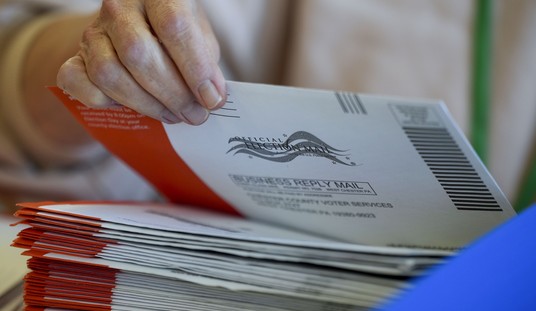Last week, ExxonMobil filed a lawsuit against the Department of the Interior in the Western District of Louisiana. The lawsuit alleges that DOI, through the Minerals Management Service (MMS), acted improperly in cancelling three leases owned by ExxonMobil and Statoil, its 50% partner. The leases are in a field designated “Julia”, which lies in 7,000 feet of water, some 200 miles off the Louisiana coast. The story of was covered by the Wall Street Journal, the Houston Chronicle and numerous blogs.
But the outlets I’ve read did not delve into what is both the most interesting and the most troubling aspect of the controversy: the Government’s motivation. In sum:
[44] As ExxonMobil demonstrated in the administrative proceedings below, Interior’s economic incentive to cancel the Original Julia Leases is clear. Cancelation [sic] of the Original Julia leases would enable Interior to grant new leases on Walker Ridge Blocks 584, 627, and 628. Because producible wells have been drilled on Walker Ridge Blocks 584 and 627, the lease bonuses to be paid to Interior for new leases of those blocks would be very high. Moreover, new leases of Walker Ridge Blocks 584, 627, and 628 would not be subject to the mandatory royalty relief that applies to the Original Julia Leases under Section 304 of the RRA. Accordingly, by enabling Interior to grant new leases on blocks with proven reserves, cancelation of the Original Julia Leases would give Interior the opportunity to collect millions of dollars in bonuses and royalties that it otherwise would not be entitled to collect if the Original Julia Leases are not canceled.
[Emphasis mine.]
This Administration would make Hugo Chavez proud.
Disclaimer: I have only reviewed Exxon’s complaint. DOI has yet to reply, so I have the benefit of only one side of the story. But the Exxon complaint is clear, well composed and well documented.
In the late 1990s, with oil prices averaging less than $20 per barrel, Congress instituted the Royalty Relief Act (RRA) which was designed to encourage exploration of deepwater leases that might be deemed economic with their then-standard 12.5% deepwater royalty rate. The RRA would allow the oil company to pay zero royalty until its costs were recovered. The RRA was supposed to phase out once oil reached $35 per barrel.
But for two years’ worth of leases, Interior screwed up. The $35 cap language was inexplicably left out of the leases. I blogged about the issue last February, in a post titled A Deal’s a Deal (Unless You’re the Government).
In a deal between private parties, the plain language of the lease, and not its “intent”, would govern. Interior felt that different rules should apply, and sued. They lost, and the Supreme Court refused to hear its appeal.
Deepwater Royalty Relief remains stuck in the craw of Congressional Democrats. There have been several attempts to reimpose an effective royalty, styled as a surtax, on the “offending” leases. President Obama’s attempt to “close the loopholes” on energy producers includes language that would impose such a surcharge on those deepwater leases.
So, to summarize:
- If Exxon retains its leases, the royalty rate remains 12.5%, but no royalty is payable until Exxon recovers its development cost, estimated to be $1 billion.
- If Exxon loses its leases, the leases will be offered to industry in a future lease sale. They will command a very large lease bonus because Exxon’s two wells have already proved substantial reserves. In addition, royalty will be payable from day 1 of production at the current rate of 18.75%.
The difference could easily run to several $billion.

Exxon’s Julia discovery offsets Chevron’s Jack Field, the first deepwater discovery in the “Lower Tertiary” play. Chevron plans to install a major producing facility at Jack, dubbed the Jack/St. Malo Host. Chevron’s St. Malo Field is a few blocks east of Jack; its subsea wells will be tied back to the JSM Host for processing.
Exxon’s first Julia well encountered 300 feet of oil bearing sand between 28,000 feet and 31,000 feet.The second well found nearly 1,000 feet of pay. Exxon touts “billions of barrels in place” in the Julia Field, but only a fraction of that can be expected to be produced given the technical challenge of recovering oil from tight rocks at that depth. It’s an important and substantial find, but not likely to be the behemoth that the Journal’s reporting breathlessly asserts.
Exxon says they committed to development, and at the urging of MMS staff, applied for a “Suspension of Production” (SOP) which would secure their lease rights on all the Julia leases past the primary term of the leases (which had begun to expire in 2008). To that end, they paid for 20% of the upfront costs for the JSM Host and made plans to develop.
MMS subsequently rejected the SOP on the pretext that Exxon did not control the JSM Host. With the Unit dissolved, the 3 1998-vintage leases were dead.
Exxon appealed the decision, and won their appeal with the argument that SOPs are routinely granted especially in the case of frontier deepwater developments. Both Jack and St. Malo are currently under similar SOPs. However, Exxon’s successful appeal was ultimately overturned by Interior’s ultimate internal appeal board.
So now Exxon has taken their case to Federal court in Lake Charles. They were joined a few days later by co-venturer Statoil.
I know that a lot of this is inside baseball for those of you who only know Exxon via the business end of a gasoline pump. I’ve tried to make it as understandable as possible for the layman.
While I cover energy issues from all angles, I hate to shill for the Big Oil companies. My employer is an “independent” shallow water operator, and our interests rarely coincide with the big multi-national deepwater players. They have deep enough pockets that they can pay for a legion of PR types; they don’t need the help of an amateur blogger like me.
But this case troubles me enough to write about. If Exxon’s allegations are true, our Government has crossed a line, and is improperly pursuing legally-gained private interests not out of legal or moral principle but out of greed and retribution.
One last point: all of this happened pre-Macondo, pre-BOEMRE, pre-boot-on-the-neck MMS days. These were the days of the “cozy relationship”, remember?
Cross-posted at stevemaley.com.













Join the conversation as a VIP Member